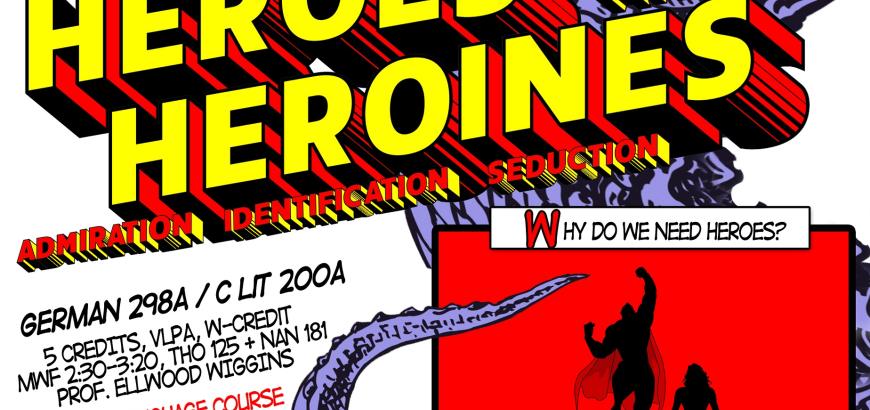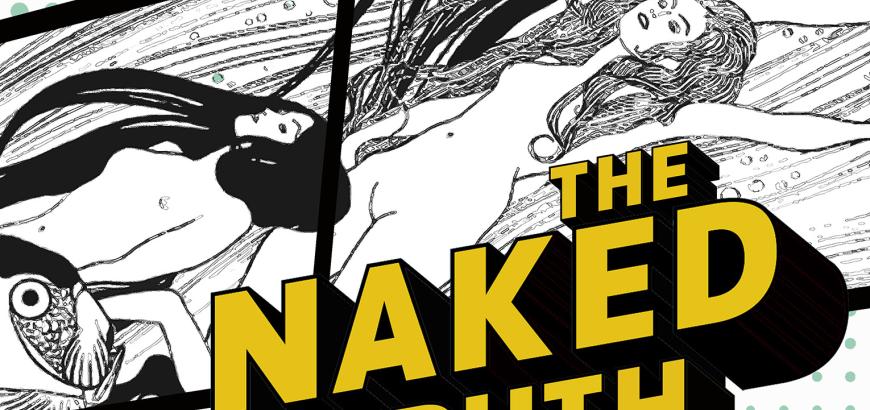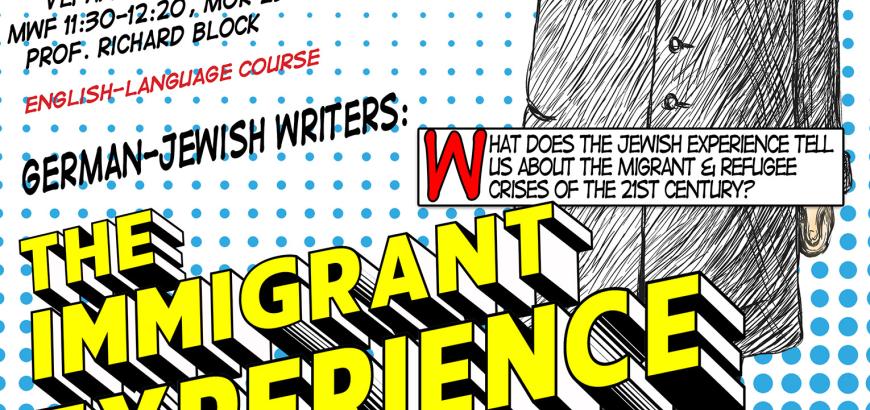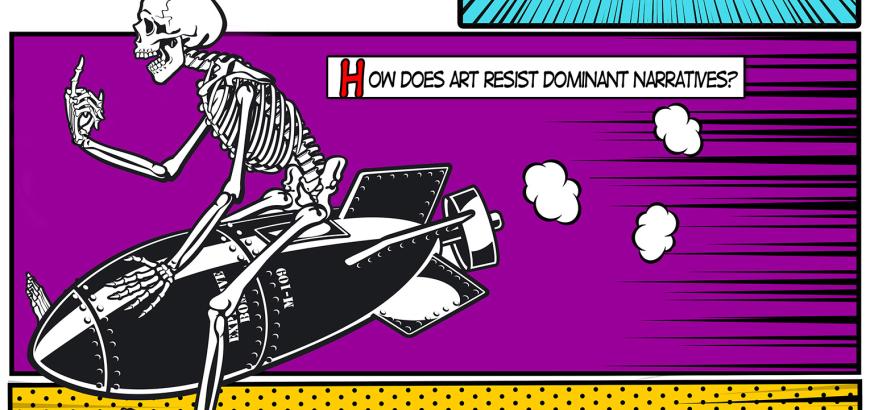Whether you are curious about the Art of Protest, need to fulfill your VLPA / I&S or DIV credits, or just looking to further your education, these courses are sure to open your mind and inspire you!
The following English-language and culture courses are open to all students.
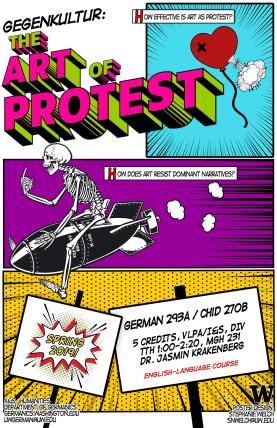
GERMAN 293A / CHID 270B: Gegenkultur: The Art of Protest
(sln: 14805), VLPA/I&S, DIV, 5 credits
TTh 1:00 – 2:20pm, MGH 231
Instructor: Dr. Jasmin Krakenberg
Focusing on the culture of today’s German speaking world, the course reflects on the role of visual arts, film, music, prose, poetry, and drama in responding to conflict. Its goal is to understand the role of protest and dissent in the 20th and 21st century. How do writers, artists, and filmmakers adopt new communication strategies to resist dominant narratives? And how effective is art as a form of protest and a conduit of change?
Protest and resistance takes many forms. In search for better understanding how culture is created, resisted, and appropriated, we will focus on independent, unpopular, and marginalized voices, including the wide range of social movements (e.g. women’s rights, LGBT, civil rights, and environmentalism). To rethink evolving notions of “canon,” we will look at works by Afro-German writer May Ayim and Japanese writer Yoko Tawada, protest songs by poet Wolf Biermann, artworks by Chinese artist and activist Ai Weiwei and German visual artist Hito Steyerl, performances by German experimental group Einstürzende Neubauten, Russian punk-rock group Pussy Riot, and electro-pop musician Bernadette La Hengst, underground literature and publishing, hip-hop and punk music in Hamburg and Berlin, street art, graphic novels, and films associated with the new avant-gardes. Many works are not necessarily overtly political (though they may well be that, too). They offer, foremost, aesthetic protest by resisting clichés and challenge received ideas of what stories, images, and music are. And they do so in order to expand the audience’s imagination and sensitize emotional responses.
The course will offer students opportunities to explore ways in which communities address issues of cultural inclusion and dissonance through the arts. Students will explore a wide range of texts, engage with archival materials (on-line and on-site), and evaluate the legitimacy of sources of information. They will also consider how close readings and textual analysis can translate across genre and medium.
English-language course. All readings and discussions will be conducted in English.
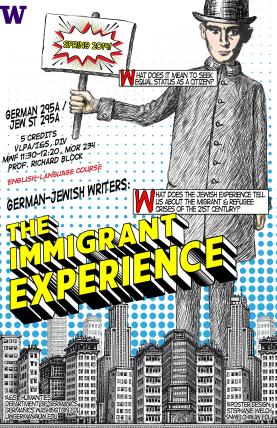
GERMAN 295A / JEW ST 295A: German-Jewish Writers: The Immigrant Experience
(sln: 14806), VLPA/I&S, DIV, 5 credits
MWF 11:30-12:20, MOR 234
Instructor: Professor Richard Block
For Jews, living in exile for nearly 1700 years, the opportunities to enjoy the rights of full citizens were never as promising as they were in Germany and Austria during the long 19th century. In the so-called century of emancipation, Jewish Germans took advantage of their newly acquired status as apparent equals to distinguish themselves in all walks of life, particularly in the arts and letters. But alongside such stories of success a new form of Jew hatred was gaining traction that would eventually lead to the destruction of European Jewry under the Nazis.
Jewish writing of this period is thus truly remarkable for how it anticipates and responds to the on-going threats immigrants face, including those in America in 2019. These works stand as testimony to the hopes and accomplishments of immigrants as well as to the existential dangers lurking behind the many smiling faces of their fellow citizens. English-language course.
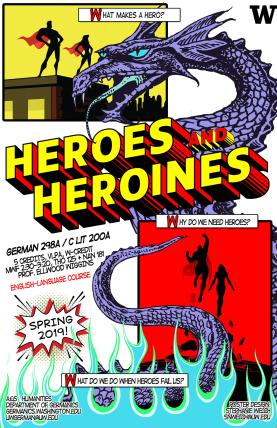
GERMAN 298A / C LIT 200A: Heroes and Heroines: Admiration, Identification, Seduction
(sln: 14807), VLPA, 5 credits
MWF 2:30 – 3:20, THO 125
Instructor: Professor Ellwood Wiggins
What makes a hero? Why do we need heroes? What happens when heroes fail us? In this course, we explore the characteristics of heroes in literature and film from antiquity to today. The formal and psychological structures of heroism will be analyzed under the rubrics of admiration, identification, seduction, and disillusionment. We will interrogate how both genre and gender impact the representation of heroes, and examine characters such as Achilles, Odysseus, Antigone, Amazonian Warrior Princesses, Jesus, Satan, Buddha, Zarathustra, Mother Courage, and Buffy the Vampire Slayer. Students will work in groups on creative projects to create heroes of their own. Readings and discussion in English. (W Credit) English-language course.
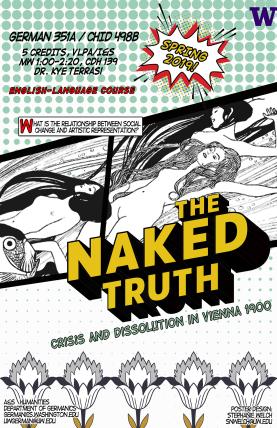
GERMAN 351A / CHID 498B: The Naked Truth: Crisis and Dissolution in Vienna 1900
(sln: 14810), VLPA/I&S, 5 credits
MW 1:00 – 2:20pm, CDH 139
Instructor: Dr. Kye Terrasi
This course is an interdisciplinary exploration of the literature and the visual culture of fin-de-siècle Vienna and the Austro-Hungarian Empire, and the aftermath of its disintegration into World War I. With an emphasis on the relationship between different disciplines (literature, art, critical theory, history and psychology) the course will be organized around major themes from the period, such as sexuality, gender, decay, and the crisis of identity and language. The analysis of works such as Egon Schiele's self portraits reveals mankind's crisis of identity when confronted by an era characterized by the absence of any ordering principles. Arthur Schnitzler's play Reigen and his novella Night Games unmask a battle of the sexes and the changing dynamic between men and women. Gustav Klimt's Secessionist paintings express a fresh hope for a renewal in art and society and his portrayal of the feminine form undercut previous views regarding gender and sexuality. In Chandos Brief, Hugo von Hofmannsthal lays bare the notion that the inherited language of past traditions is no longer capable of expressing modern man's experience. Wes Anderson's modern film The Grand Budapest Hotel seeks to capture the decay of the Empire as it holds up a mirror which brilliantly reflects 'the world of yesterday' that Stefan Zweig so faithfully describes as he looks back to the Vienna of his youth. Finally, with the primary texts read against a variety of social, historical and theoretical texts pertinent to the topics and the era, such as Sigmund Freud's Interpretation of Dreams, Carl Schorske's Fin-de-Siècle Vienna Politics and Culture and Hermann Broch's Hofmannsthal and His Time, the course will inquire into the relationship between the political and social change of Vienna and it's literary and artistic representation.
Through written, analytical responses as well as creative individual and group projects, students will have the opportunity to delve into other cultural aspects of the city, both from the turn of the century and contemporary Vienna. For example, students will collaborate on contributions to a feuilleton journal for the course modeled on Karl Kraus' Die Fackel, which will feature their creative interpretations of the cultural, literary, social and artistic trends of the turn of the century.
English-language course. All readings and discussions will be conducted in English.
CHECK OUT all of our spring courses including the course descriptions.
Questions? Contact us at uwgerman@uw.edu or drop by our main office in Denny Hall.
